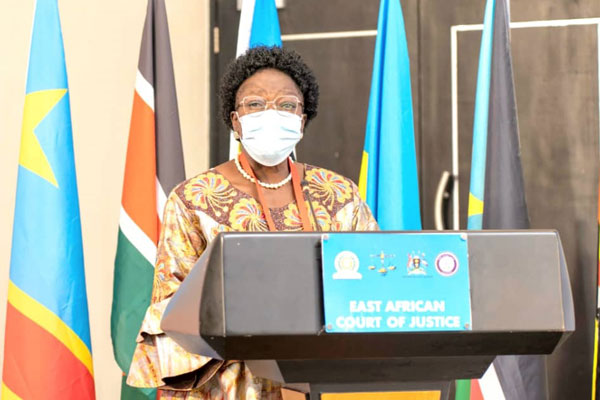Prime
Uganda cabinet to start Kiswahili lessons on Monday

Ms Rebecca Kadaga, the First Deputy Prime Minister and Minister for East African Community Affairs. PHOTO/ COURTESY
What you need to know:
- In July, the Cabinet approved the implementation of the 21st East African Community Summit directive in Uganda to adopt Kiswahili as the official language.
- The Cabinet also approved compulsory teaching of the language in primary and secondary schools.
The Cabinet will start taking Kiswahili lessons for at least one hour starting Monday as one of the steps to fully achieve East African integration, Ms Rebecca Kadaga, the First Deputy Prime Minister and Minister for East African Community Affairs, has said.
“I am sure that in this region, it’s us who are worse in Kiswahili and in about a year’s time, shall be able to speak to you in the Kiswahili language,” Ms Kadaga said yesterday during the opening of the 2nd annual East African Court of Justice judicial conference in Kampala.
In July, the Cabinet approved the implementation of the 21st East African Community Summit directive in Uganda to adopt Kiswahili as the official language. The Cabinet also approved compulsory teaching of the language in primary and secondary schools.
Kiswahili, mainly spoken in the East African region, is a fusion of the dialect born of Bantu and Arabic languages. It has earned its place of pride as one of the world’s top 10 most spoken languages and Africa’s most widely used native language.
It enjoys official status in Kenya and Tanzania and is also widely spoken in parts of DR Congo, Rwanda, and Burundi. It became the first African language to be spoken by more than 200 million people.





